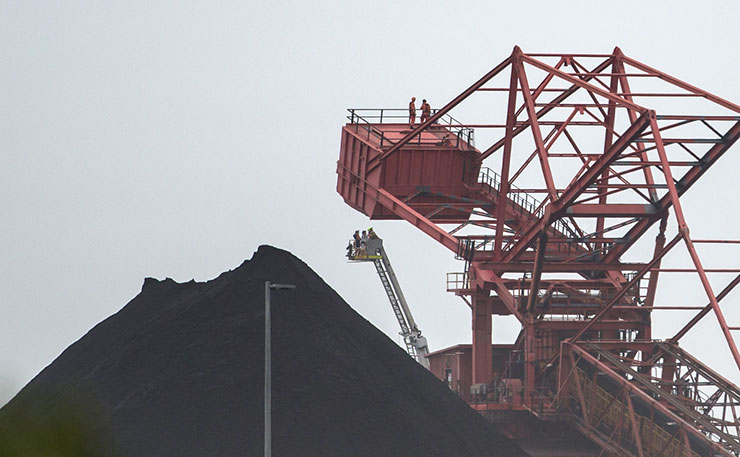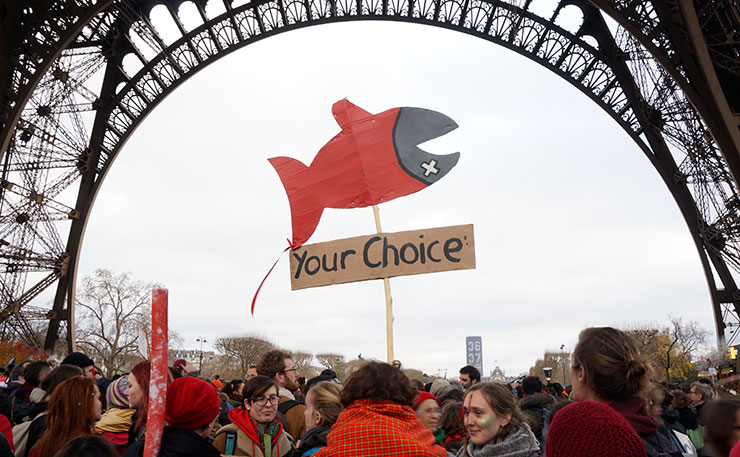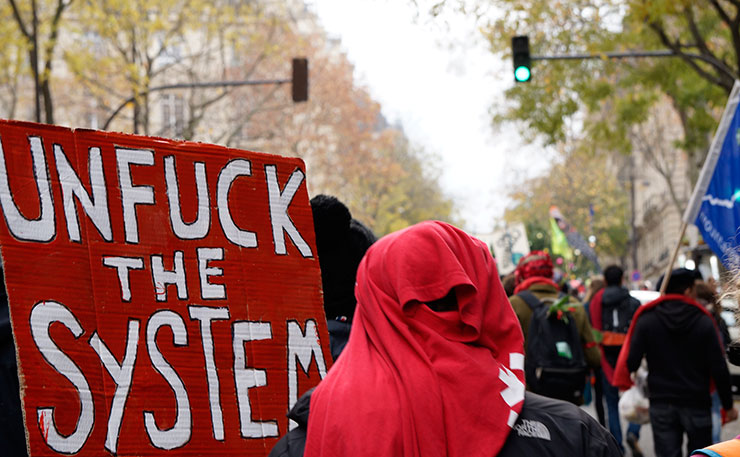OPINION: In May this year, a wave of protest is set to crash down on the fossil fuel industry, with a coalition of non-government organisations building a global campaign to “break free” of polluting corporations and their dangerous products.
Many of the countries where coordinated strikes on coal, oil and gas are planned will see widespread civil disobedience. The idea is to mount an on-the-ground attack on the corporations that have done everything they can to impede progress on climate change, in order to continue profiting from it.
Coming off the back of the hottest year on record, and with emissions still rising, it’s time to strike at the supply side of the fossil fuel industry, as well as trying to reign in demand: To create space for alternative clean energy to grow, free from the smog of mining lobbyists and the industry’s revolving door with politics.
In the wake of the Paris climate deal – a theoretical death-knell for some of the largest corporations on earth, and some of the most cashed-up political donors and whisperers – citizens are being invited to take meaningful action.
The civil disobedience campaign is slated to run between May 4 and 15. Launched today, it will take place across at least 11 countries, including Australia, Indonesia, the United States, Canada, the Philippines, Brazil, Turkey, the UK and Germany.
According to a media advisory circulated by climate advocacy group 350.org, Australian activists will strike “the world’s largest coal port in Newcastle, and demonstrate their resolve to make the climate a key issue in the coming election”. In Germany, following the occupation of a lignite mine in Rhineland by 1,500 people last year, activists will again highlight the nation’s dirtiest industry, in Lusatia.

“It’s in our hands to close the gap between what current commitments will achieve and what science demands is necessary in order to protect our common home,” said Payal Parekh, the Global Managing Director of 350.org.
In December 2015 – the hottest December recorded in the last 136 years, and the largest departure from any monthly temperature average during that period of record – the governments of 195 countries agreed to limit global warming to well below two degrees.
It’s a theoretically historic deal, but it doesn’t even mention ‘fossil fuels’. This refusal to name the problem is part of a polite silence around the need to kill off the business interests of oil, gas and coal barons – a politically palatable double-speak that’s not proportionate to the problem.
In tandem with a similar global campaign that does attack the political and social credibility of the big fossil fuel companies by urging investors to divest their money on ethical grounds, the “break free” campaign will attack fossil fuel companies’ on-site.
It couldn’t come at a worse time for the industry, which is flailing as oil, gas and coal prices plunge, and their increasingly short future is writ large on the walls of financial markets.
As prominent environmental campaigner and co-founder of 350.org Bill McKibbon put it in Yes! Magazine, “we have to attack this problem from both ends, going after supply as well as demand. We have to leave fossil fuel in the ground”.
“It’s people against physics, which means that compromise and trade-off don’t work.”

The uncompromising tactic of peaceful non-violent direct action is an increasingly common component of the climate movement. It has featured prominently in places like James Price Point, Western Australia, and the Leard and Pilliga forests in north-west New South Wales, where Whitehaven Coal and Santos want to build two of the state’s largest fossil fuel projects.
It’s an effective tactic conservative State Premiers, at the behest of mining companies, have tried to head off as it gathers pace. Anti-protest laws have flourished in Western Australia, Victoria, Tasmania, and New South Wales. Liberal governments are seeking to fabricate a ‘right’ of big developers to do business that jeopardises all of our futures (paywalled).
As New Matilda has been reporting over the course of this week, Mike Baird’s New South Wales Government has unveiled a bill that’s designed to further criminalise protests which inconvenience business. They were promised by the Premier at a mining industry dinner, and pushed by his former Chief of Staff, Stephen Galilee, who now heads up the state’s mining lobby.
On Tuesday, the Sydney Morning Herald reported that the NSW Liberal Party had passed a motion calling for a national debate between scientists from the Intergovernmental Panel on Climate Change and “independent” scientists.
They want to dredge up the denialist question: “is all the science settled”. That, more than anything, shows why people are right to take the decommissioning of fossil fuels into their own hands.
Donate To New Matilda
New Matilda is a small, independent media outlet. We survive through reader contributions, and never losing a lawsuit. If you got something from this article, giving something back helps us to continue speaking truth to power. Every little bit counts.





